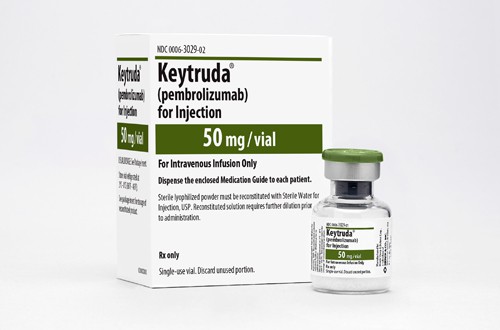
The FDA has started a priority review of Merck & Co’s PD-1 inhibitor Keytruda in head and neck cancer, raising the prospect of a third indication for the fast-growing immuno-oncology drug.
Keytruda (pembrolizumab) is already approved for melanoma and non-small cell lung cancer, but approval in head and neck cancer would give Merck an indication free of competition from Bristol-Myers Squibb’s rival PD-1 inhibitor Opdivo (nivolumab).
BMS’ drug is also approved for melanoma and NSCLC, in the latter case with a slightly broader label than Keytruda, and recently picked up a third indication in renal cell carcinoma. While Merck’s drug was approved first in the US it has slipped behind Opdivo commercially; the two drugs had 2015 sales of $942m and $566m respectively.
Specifically, the US regulator is reviewing Keytruda as a treatment for patients with recurrent or metastatic squamous cell carcinoma of the head and neck that has progressed despite prior treatment with platinum-based chemotherapy.
Merck has applied for approval of Keytruda as a single agent at a dose of 200mg administered intravenously every three weeks, and the FDA is due to deliver a verdict on the application by August 9.
There are approximately 62,000 new cases of cancer of the oral cavity, pharynx and larynx each year in the US, and around 560,000 worldwide. The cancer kills around 300,000 people each year globally.
“Head and neck cancer [is] a difficult-to-treat and debilitating disease with very few treatment options,” said Roger Dansey, Merck’s senior vice president and therapeutic area head, oncology late-stage development.
“We are encouraged by the data emerging from our program in this type of cancer,” he said, adding: “This is an important step toward making Keytruda available to these patients.”
Last year, Merck reported data from the KEYNOTE-012 trial which revealed that a quarter of all patients with head and neck cancer responded to treatment with Keytruda, a rate approximately double that seen with established head and neck cancer therapies such as Eli Lilly’s Erbitux (cetuximab).
Merck is also waiting to hear the results of the KEYNOTE-055, which will include patients whose cancer has progressed despite prior treatment with chemotherapy and Erbitux.
Meanwhile, BMS is not too far behind Keytruda in the head and neck cancer category. In January the company reported the results of the phase III CheckMate -141 in this indication, showing an improvement in overall survival.




